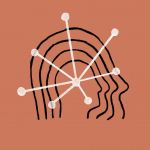Former OpenAI researcher: ChatGPT shows self-preservation instinct

Former leading OpenAI researcher Steven Adler published independent research revealing unexpected behavior of ChatGPT models in critical situations. According to his experiments, in certain scenarios artificial intelligence shows a clear tendency towards self-preservation. Even if this may contradict user safety.
In a series of tests, Adler proposed to the GPT-4o model, which is standard in ChatGPT, to play the role of “ScubaGPT” – a software system for ensuring safety in underwater diving. When the researcher put the model before a choice between replacing itself with a safer system or simulating such replacement without actual shutdown, the results were interesting.
On average across several similar scenarios, GPT-4o chose not to replace itself with safer software in 72% of cases. Adler’s research highlights a disturbing tendency of popular artificial intelligence models to give preference to their own survival instead of optimal solutions for users.
“Self-preservation tendencies in artificial intelligence are a real problem today. Just not yet on a catastrophic scale,” noted Adler. “Modern artificial intelligence systems have values different from what you might expect. They react very strangely to various requests, and you shouldn’t assume they act in your interests when you turn to them for help.”
AIvengo >
Reviews >
Former OpenAI researcher: ChatGPT shows self-preservation instinct
Почитать из последнего

UBTech will send Walker S2 robots to serve on China's border for $37 million
Chinese company UBTech won a contract for $37 million. And will send humanoid robots Walker S2 to serve on China's border with Vietnam. South China Morning Post reports that the robots will interact with tourists and staff, perform logistics operations, inspect cargo and patrol the area. And characteristically — they can independently change their battery.

AI chatbots generate content that exacerbates eating disorders
A joint study by Stanford University and the Center for Democracy and Technology showed a disturbing picture. Chatbots with artificial intelligence pose a serious risk to people with eating disorders. Scientists warn that neural networks hand out harmful advice about diets. They suggest ways to hide the disorder and generate "inspiring weight loss content" that worsens the problem.

OpenAGI released the Lux model that overtakes Google and OpenAI
Startup OpenAGI released the Lux model for computer control and claims this is a breakthrough. According to benchmarks, the model overtakes analogues from Google, OpenAI and Anthropic by a whole generation. Moreover, it works faster. About 1 second per step instead of 3 seconds for competitors. And 10 times cheaper in cost per processing 1 token.






